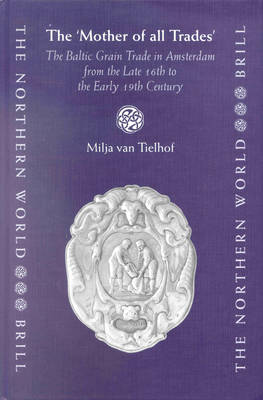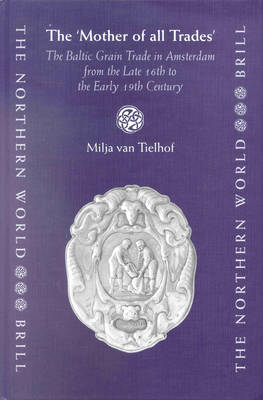
- Afhalen na 1 uur in een winkel met voorraad
- Gratis thuislevering in België vanaf € 30
- Ruim aanbod met 7 miljoen producten
- Afhalen na 1 uur in een winkel met voorraad
- Gratis thuislevering in België vanaf € 30
- Ruim aanbod met 7 miljoen producten
Zoeken
The 'Mother of All Trades'
The Baltic Grain Trade in Amsterdam from the Late 16th to the Early 19th Century
Milja Van Tielhof
€ 137,94
+ 275 punten
Omschrijving
In the early-modern period, the Dutch called the grain trade on the Baltic the 'mother of all trades', as they considered it to be the basis of most of their trade and shipping and indeed the cornerstone of the Dutch economy. For a very long time the mass grain exports from the Baltic were dominated by the Dutch, and
Amsterdam was the central entrepôt from which the grain was distributed over the Dutch hinterland and the rest of Europe.
This book aims to present a general history of the 'mother of all trades' and particularly shows the fundamental importance for transaction costs, including the costs for transport, insurance and protection, the quality of the local services sector in Amsterdam, the influence of monetary and mercantile policies, and the efficiency of trade organization.
Amsterdam was the central entrepôt from which the grain was distributed over the Dutch hinterland and the rest of Europe.
This book aims to present a general history of the 'mother of all trades' and particularly shows the fundamental importance for transaction costs, including the costs for transport, insurance and protection, the quality of the local services sector in Amsterdam, the influence of monetary and mercantile policies, and the efficiency of trade organization.
Specificaties
Betrokkenen
- Auteur(s):
- Uitgeverij:
Inhoud
- Aantal bladzijden:
- 424
- Taal:
- Engels
- Reeks:
- Reeksnummer:
- nr. 3
Eigenschappen
- Productcode (EAN):
- 9789004125469
- Verschijningsdatum:
- 31/05/2002
- Uitvoering:
- Hardcover
- Formaat:
- Genaaid
- Afmetingen:
- 165 mm x 244 mm
- Gewicht:
- 879 g

Alleen bij Standaard Boekhandel
+ 275 punten op je klantenkaart van Standaard Boekhandel
Beoordelingen
We publiceren alleen reviews die voldoen aan de voorwaarden voor reviews. Bekijk onze voorwaarden voor reviews.











